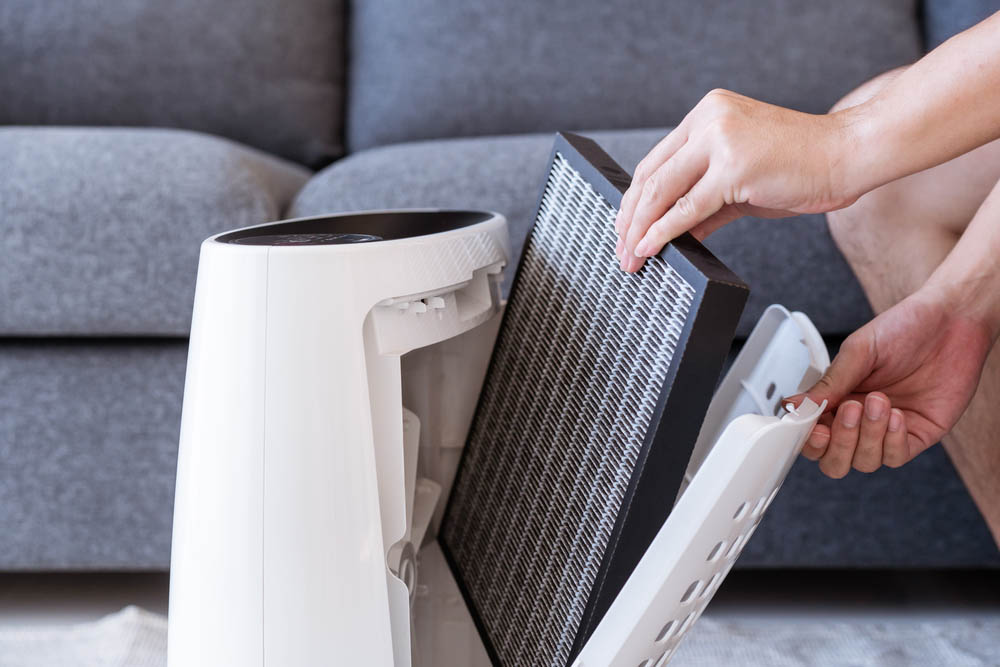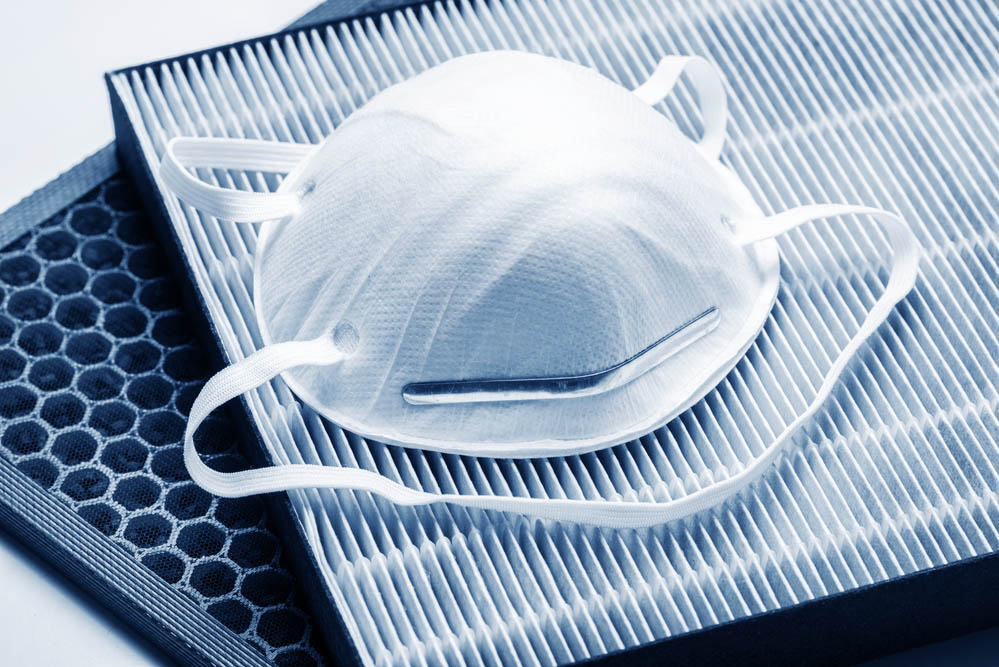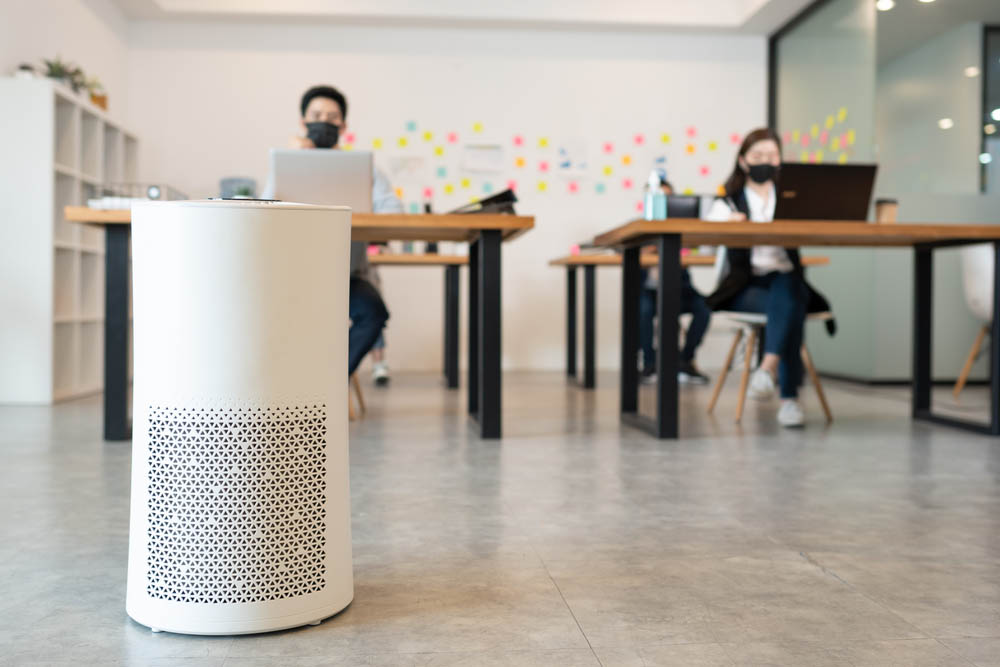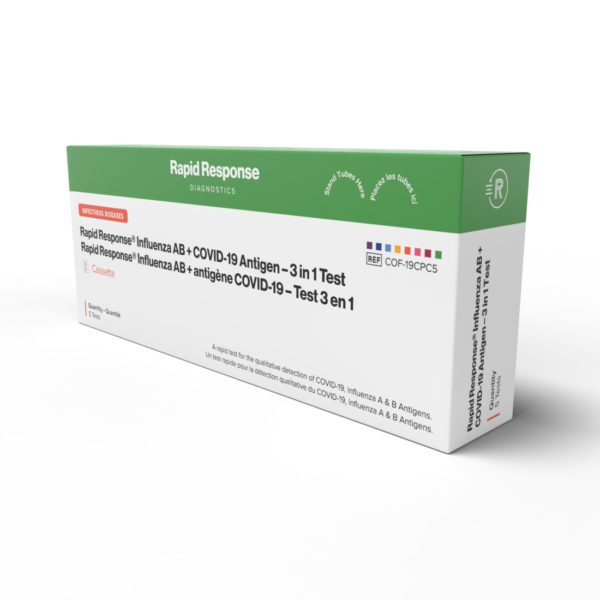Despite being the go-to solution for improving indoor air quality, many people are still unsure about what High-Efficiency Particulate Air (HEPA) filters are, how they work, do they really improve air quality and the benefits they offer.
In this comprehensive blog post, we’ll look into HEPA filters and provide you with all the information you need to make an informed decision for the airflow in your home or workplace.
What are Hepa filters?
HEPA filters, also commonly known as HEPA air purifiers, are specialized air filters designed to replace natural or mechanical ventilation in capturing and removing airborne particles from the air in your indoor environment.
These particles include:
- Allergens
- Dust
- Mold spores
- Viruses
These filters have become increasingly popular due to their ability to dramatically improve air pollution, making them an essential component of portable air wells in homes, offices and medical facilities alike.
HEPA filters are made from a dense network of interlaced fibers, which are usually composed of:
- Fiberglass
- Polyester
- Other synthetic materials
These fibers are assembled into a mat-like structure, with spaces between the fibers that allow air to pass through while capturing particulates.
The thickness and density of the fibers, as well as the spacing, contribute to the overall efficiency of the filter in both airflow and trapping particles.
To qualify as a HEPA filter, a product must meet strict efficiency standards set by the U.S. Department of Energy (DOE). These standards mandate that a HEPA filter must capture at least 99.97% of particles with a size of 0.3 microns or larger. This high level of filtration ensures that your living spaces are free from harmful airborne contaminants and allows you to breathe easier and live healthier.

How do HEPA air filters work?
HEPA air filters work through a combination of three primary mechanisms to trap airborne particles in the air:
- Interception
- Impaction
- Diffusion
Interception
As air flows through the HEPA filter, particles come into contact with the filter’s fibers and are trapped within the system’s dense mesh. The larger the particle, the more likely it is to be caught by interception.
Impaction
High-speed air streams force particles to collide with the filter fibers, where they become embedded and are unable to escape. This process is particularly effective for capturing medium-sized particles indoors.
Diffusion
Small particles, such as those under 0.1 microns, move erratically due to Brownian motion. This random movement increases the likelihood of these tiny particles colliding with filter fibers and being captured.
By combining these three mechanisms, HEPA air filters effectively remove airborne contaminants from your home or confined space, or indoor environment, providing you with cleaner and healthier indoor air throughout.
To maintain the product’s optimal performance and high air quality, see to it that you perform regular maintenance, such as replacing the filter as recommended by the manufacturer.
Benefits of HEPA filters
1. Improved air quality
HEPA filters effectively remove airborne contaminants, reducing the number of allergens, pollutants, and irritants in the air, resulting in a healthier environment.
2. Relief from allergies and respiratory issues
By capturing allergens such as pollen, pet dander, and dust mites from fresh air, HEPA filters can provide relief for allergy sufferers and those with respiratory conditions like asthma.
3. Protection against bacteria and viruses
While not specifically designed to capture viruses, HEPA filters can help:
- Reduce the concentration of airborne bacteria and viruses
- Reduce the risk of diseases
- Contribute to a cleaner and safer environment
4. Portable air cleaner
One of the notable benefits of HEPA filters is their integration into portable air cleaners, also known as air purifiers. These compact, standalone devices can be easily moved from room to room which provides targeted air filtration wherever it is needed most.
5. Odor reduction
Some HEPA filters are equipped with activated carbon layers, which help neutralize odors and volatile organic compounds (VOCs), and further improve indoor air purity.
How effective are HEPA filters in combating viruses?
HEPA filters’ effectiveness in combating viruses largely depends on the size of the virus particles and the specific filter’s efficiency. As mentioned earlier, HEPA filters are designed to capture particles as small as 0.3 microns with 99.97% efficiency. However, many viruses, including SARS-CoV-2, are smaller than this threshold.
Nonetheless, HEPA filters can still provide some level of protection against viruses, especially when the viral particles are contained within larger respiratory droplets.
Some HEPA filters are also enhanced with features such as UV-C light or antimicrobial coatings, which can further neutralize viruses that come into contact with the filter.
Can a HEPA air filter protect against COVID?
While HEPA air filters have been proven to be highly effective in capturing airborne particles, such as allergens and dust, their ability to protect public health against COVID-19 is less clear-cut.
The virus responsible for COVID-19, SARS-CoV-2, is approximately 0.1 microns in size, which is smaller than the 0.3-micron threshold that HEPA filters are designed to capture with 99.97% efficiency.
However, this virus is primarily transmitted through airborne transmission of respiratory droplets, which are significantly larger than the virus itself. These droplets can range from 0.5 to 5 microns, making them more likely to be trapped by a HEPA filter.
While a HEPA air filter may not guarantee complete protection against COVID-19, it can contribute to reducing the concentration of virus-containing droplets in the air, which lowers the risk of infection.
For your safety, combine the proper use of HEPA air filters with other preventive measures, such as social distancing, wearing masks and frequent handwashing.

How to choose HEPA filters
Size and compatibility
The first step in choosing a HEPA filter is determining the correct size and compatibility with your air purifier, HVAC system or vacuum cleaner. Consult your device’s manual to identify the specific filter size and model required.
Picking the right fit ensures your air purifier or cleaner has adequate ventilation for optimal performance and efficiency, while incorrect sizing can lead to reduced effectiveness and increased energy consumption.
Filter efficiency
HEPA filters are classified based on their filtration efficiency, with most filters capturing at least 99.97% of particles 0.3 microns or larger. However, some filters, known as ULPA (Ultra Low Particulate Air) filters, can capture up to 99.999% of particles down to 0.1 microns.
Consider your specific air conditioning needs and the level of filtration required when selecting a filter efficiency.
Particle size
Different HEPA filters may be more effective at capturing specific particle sizes. While most HEPA filters can capture particles as small as 0.3 microns, some specialized filters are designed to trap even smaller particles, such as viruses and ultrafine dust. Assess the primary concerns in your outdoor air indoor environment, such as allergens, dust or mold, to choose the most appropriate filter for your needs.
Additional features
Many HEPA filters come with added features that enhance their performance, such as activated carbon layers for odor removal or antimicrobial treatments to neutralize bacteria and viruses.
If you require additional full air purifiers or filtration capabilities, look for filters that offer these added benefits.
Filter lifespan and replacement frequency
HEPA filters have varying lifespans, with some requiring replacement every six months, while others can last up to three years. Check the manufacturer’s recommendations for filter replacement frequency and consider the long-term cost of replacing filters.
Price
While it may be tempting to opt for the cheapest filter available, remember that quality and efficiency shouldn’t be compromised. Higher-priced filters often provide additional protection, better filtration, and last longer, potentially saving you money in the long run.
Strike a balance between cost and quality by comparing various filter options and their respective features.
Key takeaway
HEPA filters have the capacity to remove allergens, dust and pollutants, and lead to improved air quality and relief for allergy sufferers. While they may not offer foolproof protection against viruses like COVID-19, their role in reducing airborne virus-containing droplets proves their contribution to overall safety.























































